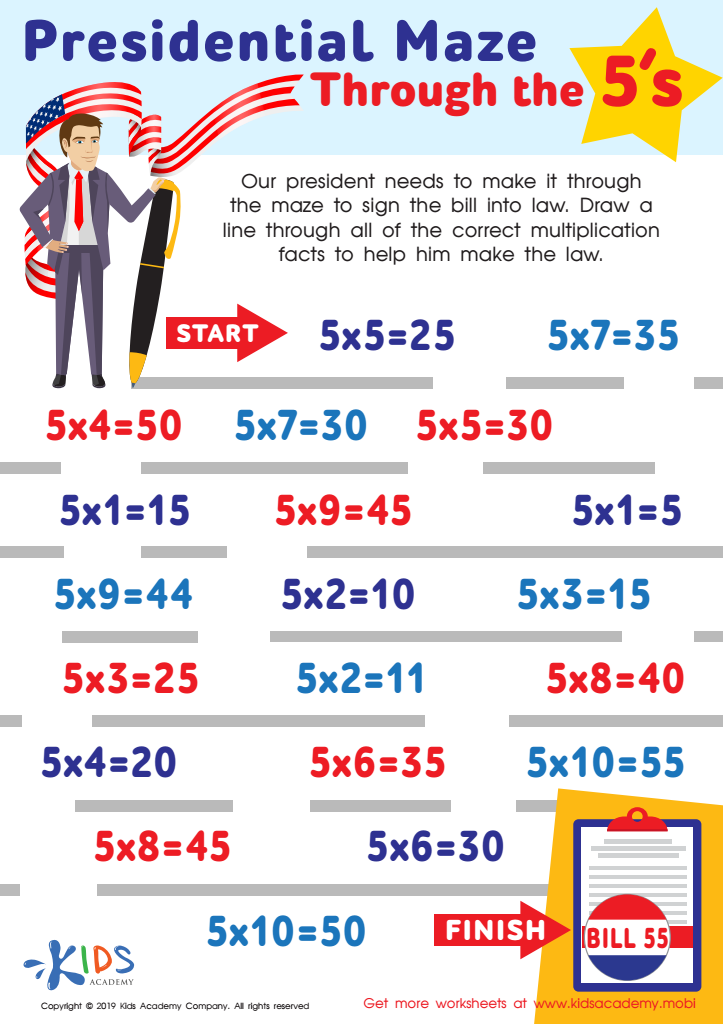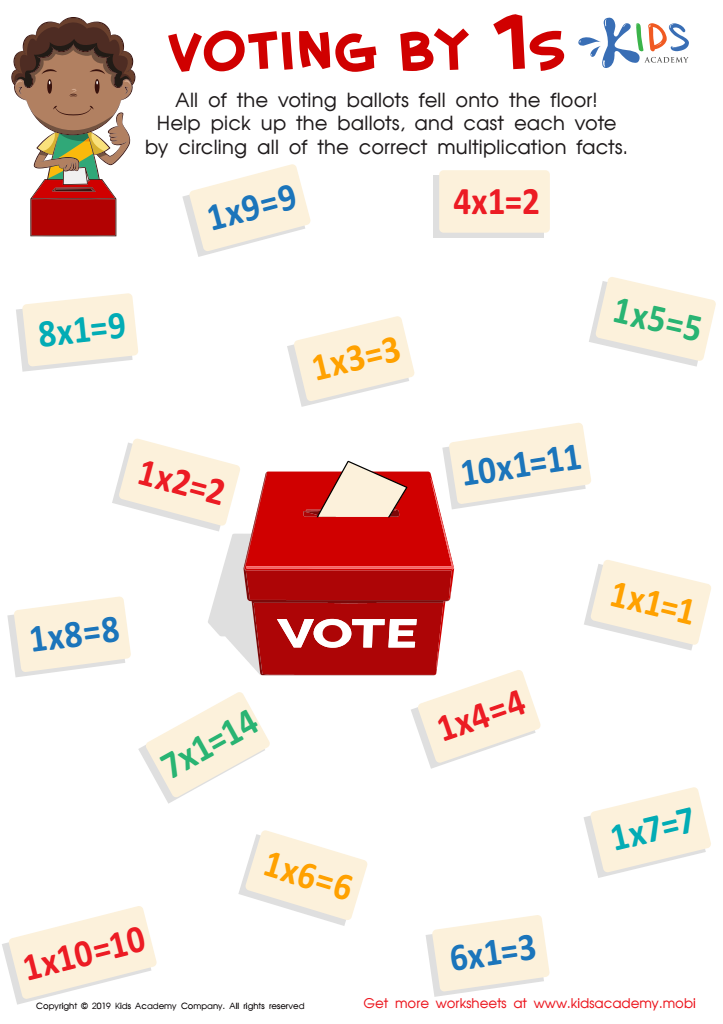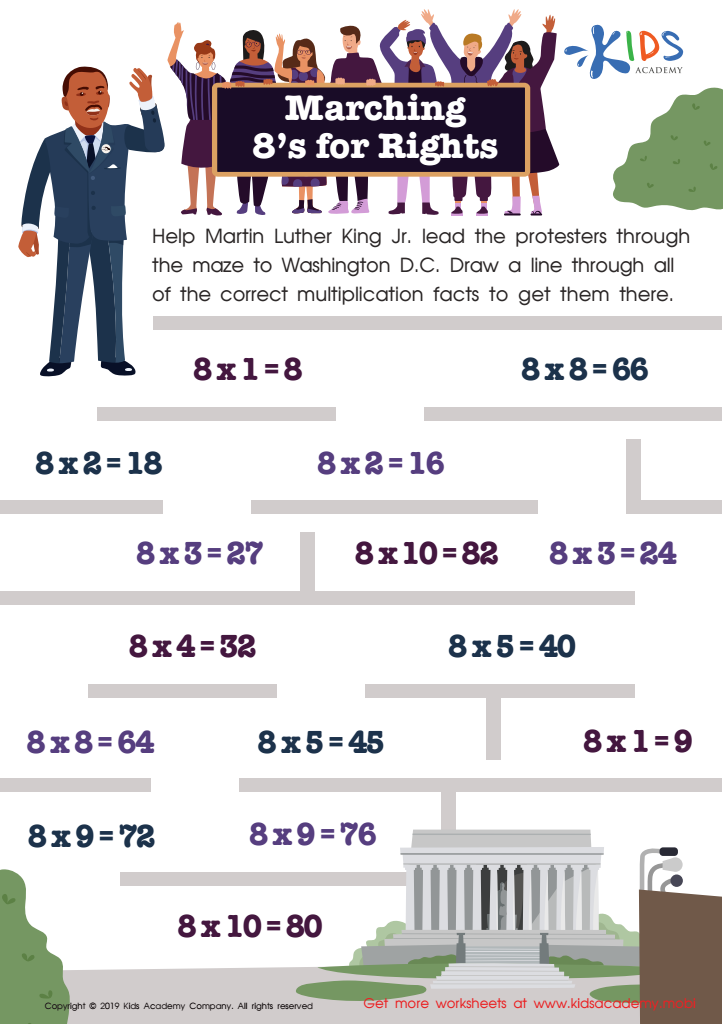Counting skills Governance and Civics Worksheets for Ages 8-9
3 filtered results
-
From - To
Explore our engaging "Counting Skills Governance and Civics Worksheets" designed for children ages 8-9! These worksheets seamlessly blend fundamental counting skills with essential civic knowledge, helping young learners grasp the importance of civic engagement. Students will practice counting while learning about government roles, democratic principles, and the significance of community involvement. Each worksheet provides colorful visuals and interactive challenges, promoting both math proficiency and an understanding of civic responsibilities. Perfect for classroom activities or home reinforcement, our resources encourage critical thinking and active participation in society. Empower your child’s development in counting and civics with these fun, educational worksheets today!


Presidential Maze Through the 5’s Worksheet


Voting by 1s Worksheet


Marching 8’s for Rights Worksheet
Parents and teachers should care about counting skills in the context of governance and civics for children aged 8-9 because these foundational skills play a critical role in developing informed, responsible citizens. At this age, children are beginning to understand not only basic mathematical concepts but also how these concepts apply to real-world scenarios, including managing budgets, understanding civic duties, and engaging in community discussions.
Counting skills enable children to comprehend data related to governance, such as voting statistics, budgets, and demographic information. This understanding supports their ability to participate in civic activities, fostering a sense of responsibility and empowerment. Moreover, learning how to analyze numerical information related to civic matters helps enhance critical thinking skills, encouraging children to form their own opinions on issues that affect their communities.
Additionally, integrating counting skills with civics teaches children how local and national governance functions, laying the groundwork for future political engagement. When they grasp the importance of their participation and the way government operations are quantified, students become more engaged in discussions and activities that shape their society. Ultimately, nurturing these skills at an early age helps foster a generation of proactive, knowledgeable citizens.

 Assign to My Students
Assign to My Students










